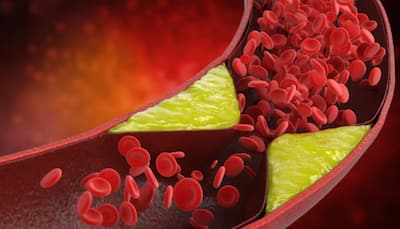Gut Health
Gut health is so important that it influences everything from digestion to mental health. The gut, sometimes called the ‘second brain,’ contains an estimated 36 trillion bacteria which helps to modulate numerous systems within our body. An unhealthy gut can contribute to everything from digestive disorders and seasonal illnesses, to mental issues such as moodiness or even depression. The good news is, you can also enhance gut health with a few dietary changes. In this blog, I will share some easy tips with you to improve your gut health.
Integrate Probiotic-Rich Foods
- Why it matters: Probiotics, which are live bacteria that benefit the health of your gut and more. They promote a healthy balance in the gut microbiome, improving digestion and immune function.
- Foods to include:
- Live–cultured yogurt
- Kefir
- Sauerkraut
- Kimchi
- Tempeh Tips: Have one portion of probiotic foods every day to have good gut flora.
Eat More Fiber
- Importance: Getting more dietary fiber feeds the friendly bacteria in your gut, allowing them to grow and flourish. Moreover, it helps in maintaining regular bowel movement and avoids constipation.
- Foods to include: Whole grains (oats, barley, brown rice) Fruits (apples, bananas, berries) Vegetables (broccoli, carrots, Brussels sprouts) Legumes (beans, lentils, chickpeas)
- Tip: Aim for at least a minimum of approximately 25-30 grams of fiber per day. Add whole grains & vegetables to every meal.
Hydrate
- Why it’s crucial: Water aids in digestion and the movement of food along your gut. The best time to drink water is on an empty stomach as it helps with digestion and prevents constipation.
- Tip: Aim to drink 8 glasses of water per day (more if you are active or live in a hot climate).
Avoid Processed Foods
- Why it matters: Processed foods are usually loaded with added sugars, unhealthy fats, and chemicals that can disrupt the balance of your gut bacteria, leading to inflammation in addition to poor gut well-being.
- Foods you should avoid include sweet snacking foods and sweets, fast meals, instant snacks, together with sodas or even possibly other candy beverages.
- Tip: Select whole, unprocessed nourishments as much as possible, and study labels to effectively dodge sneaky sugars and additives.
Add Prebiotic Foods to Your Diet
- Why it is important: Prebiotics are fibres that feed good bacteria in the intestines. They are necessary for your gut health.
- Foods to include: Garlic, Onions, Leeks, Asparagus, Bananas
- Tip: Combine different sources of prebiotics in your daily meals to help nurture a well-rounded and beneficial gut microbiome.
Fermented Foods
- Why it matters: They contain living probiotics and enzymes that stimulate digestion and keep the gut healthy. Fermented foods restore the balance of good bacteria in your gut.
- Foods to incorporate: Miso, Pickles (fermented without vinegar), Fermented tofu, tempeh, and natto, try kombucha or kimchi.
- Tip: Add a small serving of fermented foods to your diet a few times a week.
Diversify Your Diet with Plant-Based Meals
- Why: A varied diet filled with plants leads to a diverse microbiome, which is important for gut health. Different microbes thrive on different plant fibers.
- Foods to include: Leafy greens (spinach, kale), Root vegetables (sweet potatoes, carrots), Fruits (berries, citrus), Nuts and seeds (almonds, flaxseeds).
- Tip: Get all colors of the rainbow in fresh or slightly steamed veggies every single day.
Reduce Stress
- Why it matters: Long-term stress can disrupt the balance of bacteria in your gut and slow down digestion. Stress management is key for maintaining a healthy gut!
- Ways to reduce stress:
- Practice mindfulness meditation.
- Exercise at least 3 times per week
- Prioritize sleep
- Spend time in nature
- Tip: Practice stress-relieving activities for good digestion.
Limit Antibiotic Use
- Why it matters: While antibiotics are able to kill harmful as well as beneficial bacterial, the latter being important for metabolizing food waste. And that could weaken your gut microbiome.
- Tips: only take antibiotics if prescribed by a health professional and add probiotics to your diet during them, as well as after treatment with these medications.
Monitor Food Intolerances
- Crucial Because: They trigger inflammation, hurt the gut community portions of our health. Identifying your own food triggers and avoiding them can be one way of personally managing gut health.
- Common food intolerances:
- Lactose
- Gluten
- Fermentable oligosaccharides
- Disaccharides
- Monosaccharides
- polyols (FODMAPs)
- PS – If you have unexplained digestive symptoms, keep a food diary for two weeks to figure out if there are culprits behind them.
Conclusion
Gut health hacks start with very small, consistent dietary and lifestyle changes. Therefore, even by making these small changes to your diet you can help aid digestion and promote gut health, meaning that gradually over time things will improve, ultimately benefiting all aspects of wellness. Healthy gut is the main base of good health, so let’s give a good start to our healthy tomorrow by making these small changes today.
References
Harvard T.H. Chan School of Public Health. “The Microbiome.”











